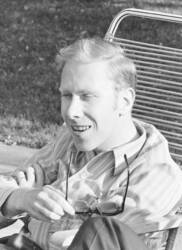Programming Leftovers
-
Adolfo Ochagavía ☛ Continuous benchmarking for rustls
Last December, I completed a half-year project to develop a continuous benchmarking system for the popular rustls library. My work was financed by ISRG, the makers of Let’s Encrypt, who are interested in rustls as a memory safe alternative to OpenSSL. The thing is, replacing OpenSSL is only realistic if you offer at least on-par performance. But how do you achieve that? What do you measure to ensure performance keeps improving and to avoid regressions?
-
Adriaan Zhang ☛ The Real Relationship Between ISO and Noise
It's a common misconception that using a high ISO setting causes more noise, but this is not exactly the case. Reality is a little more complicated; keep reading to learn why.
-
Hillel Wayne ☛ The World and the Machine
Whether something belongs to the world or the machine depends on your scope in the system. If you maintain one service and the other teams aren’t returning your calls, then their components are part of the world. If they’re sending you bad data, you need to faithfully model receiving that bad data in your spec as part of designing your machine.
-
Julia Evans ☛ Do we think of git commits as diffs, snapshots, and/or histories?
I just said that Git commits are snapshots, but when someone says “I think of git commits as a snapshot, but I think internally they’re actually diffs”, that’s actually kind of true too! Git commits are not represented as diffs in the sense you’re probably used to (they’re not represented on disk as a diff from the previous commit), but the basic intuition that if you’re editing a 10,000 lines 500 times, it would be inefficient to store 500 copies of that file is right.
-
Hackaday ☛ Remembering Niklaus Wirth: Father Of Pascal And Inspiration To Many
Although perhaps not as much of a household name as other pioneers of last century’s rapid evolution of computer hardware and the software running on them, Niklaus Wirth’s contributions puts him right along with other giants. Being a very familiar face both in his native Switzerland at the ETH Zurich university – as well as at Stanford and other locations around the world where computer history was written – Niklaus not only gave us Pascal and Modula-2, but also inspired countless other languages as well as their developers.

